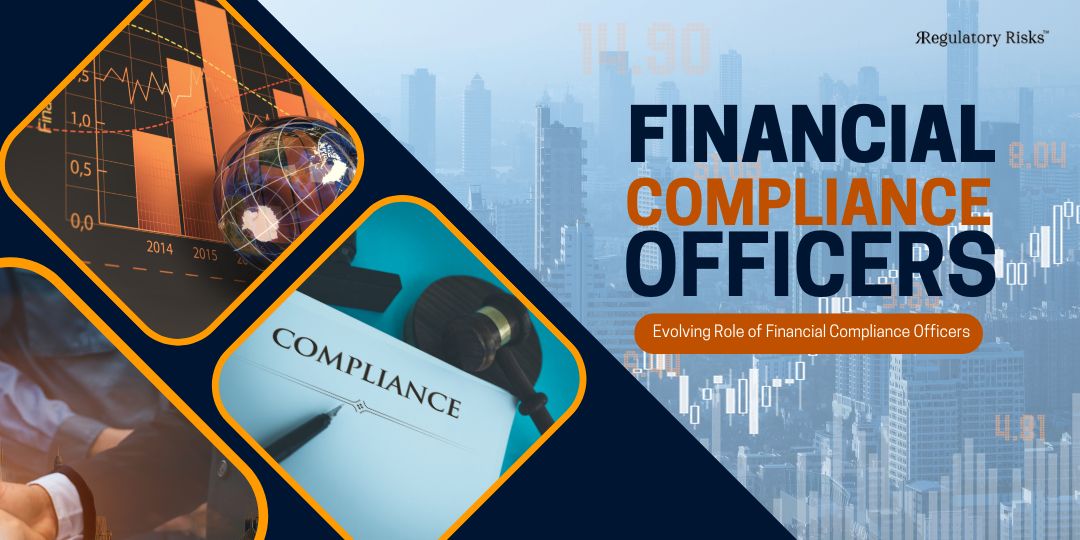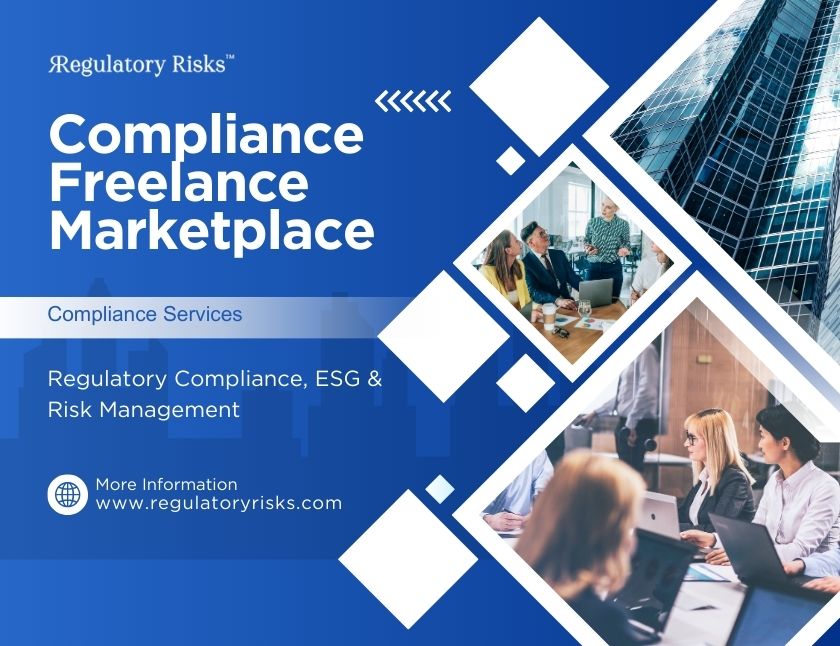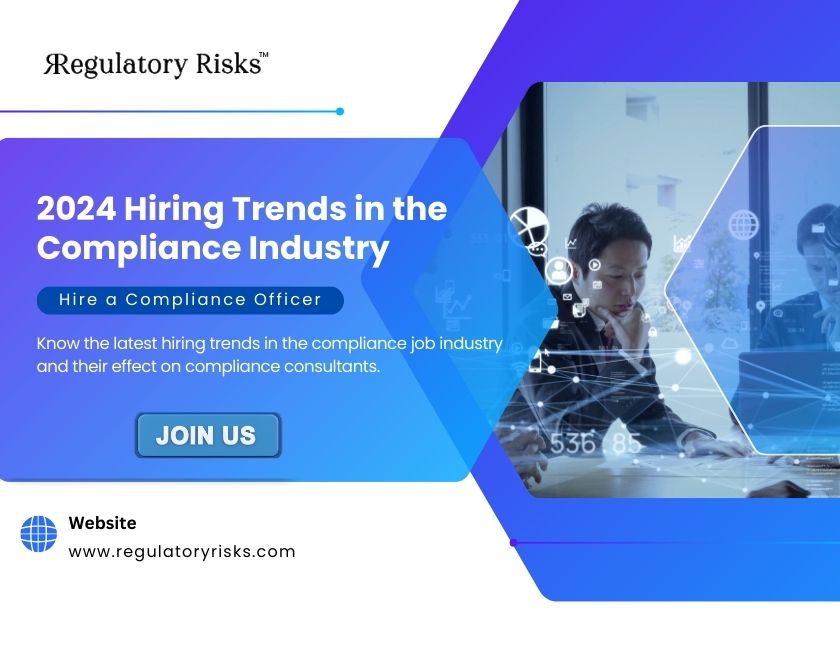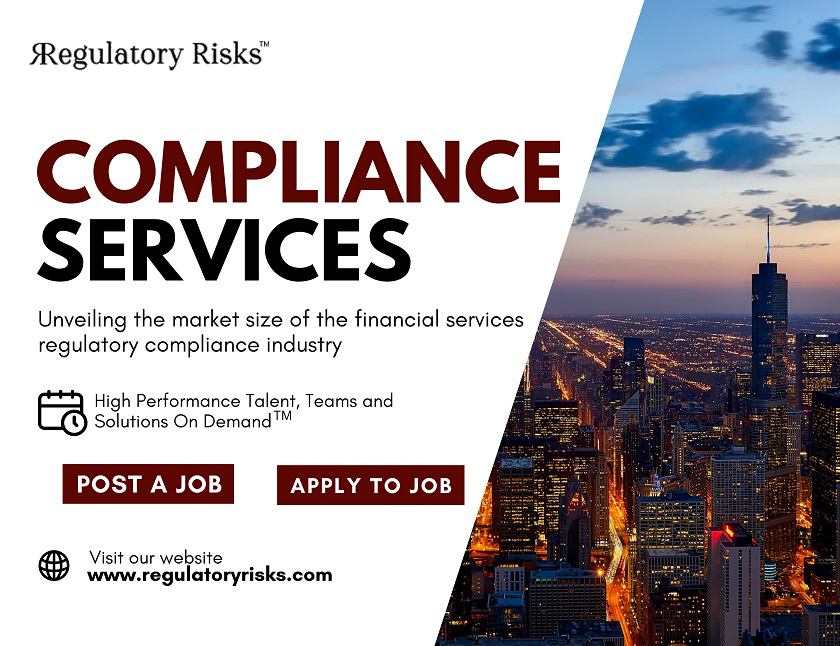In the ever-evolving financial services industry, the role of the financial compliance officer has become increasingly critical. With heightened regulatory scrutiny and the emergence of new compliance trends, businesses must adapt quickly to remain compliant and competitive. This article explores recent developments in regulatory compliance, the importance of the financial compliance officer, and how leveraging freelance compliance professionals from platforms like Regulatory Risks can offer businesses the agility and expertise they need.
The Role of Financial Compliance Officers
Financial compliance officers are the backbone of regulatory adherence within financial institutions. Their role has expanded significantly over recent years due to the increasing complexity of financial regulations and the rising emphasis on areas such as electronic communications surveillance and Environmental, Social, and Governance (ESG) compliance. Therefore, understanding what a financial compliance officer does is crucial.
Key Responsibilities of a Financial Compliance Officer
Regulatory Surveillance
Firstly, one of the primary responsibilities of a financial compliance officer is to monitor and ensure compliance with both local and international regulations. This includes anti-money laundering (AML) laws, know your customer (KYC) protocols, and data protection laws.
Risk Management
In addition, identifying and mitigating compliance risks are crucial tasks. These professionals work to foresee potential risks that could lead to financial loss or damage to the company's reputation and take steps to avoid them.
Policy Development
Moreover, creating and implementing compliance policies that align with regulatory requirements and industry best practices is another key responsibility. These policies must be continuously updated to reflect the changing regulatory landscape.
Training and Awareness
Furthermore, educating employees about compliance issues and fostering a culture of ethical behavior within the organization is essential. Compliance officers often conduct training sessions and develop educational materials.
Audit and Reporting
Lastly, conducting internal audits and preparing reports for regulatory bodies helps demonstrate compliance. This ensures that all activities within the organization meet regulatory standards.
Trends Shaping Financial Compliance Today
Electronic Communications Surveillance
The rise of digital communication channels has made monitoring electronic communications a significant challenge for financial compliance officers. They must oversee emails, instant messages, and social media interactions to prevent market abuse, insider trading, and other illicit activities.
Environmental, Social, and Governance (ESG) Compliance
ESG compliance has become a focal point as investors, regulators, and consumers demand greater transparency and accountability from businesses. Consequently, compliance officers must ensure that their organizations adhere to ESG standards, addressing issues like environmental impact, social responsibility, and corporate governance.
Data Privacy and Protection
With regulations like the General Data Protection Regulation (GDPR) and the California Consumer Privacy Act (CCPA) in place, data privacy and protection have become critical areas of focus. Therefore, compliance officers must implement robust data management practices and continuously monitor them to ensure compliance.
The Rise of Freelance Compliance Professionals
As the demand for specialized compliance expertise grows, many organizations are turning to freelance compliance professionals to fill critical roles. This trend offers numerous benefits, including flexibility, cost-effectiveness, and access to a diverse pool of talent.
Benefits of Hiring Freelance Compliance Professionals
Flexibility
Freelance compliance professionals can be hired on a project basis or for specific durations, providing businesses with the ability to scale their compliance efforts as needed.
Cost-Effectiveness
Hiring freelance compliance consultants can be more cost-effective than maintaining a full-time compliance team, especially for small and medium-sized enterprises (SMEs).
Access to Expertise
Freelance platforms like Regulatory Risks offer access to a wide range of highly qualified compliance freelancers with specialized knowledge in various areas of regulatory compliance.
Diverse Talent Pool
By leveraging freelance compliance jobs, businesses can tap into a global talent pool, ensuring they find the right expertise for their unique compliance challenges.
Leveraging Regulatory Risks for Compliance Needs
Regulatory Risks is a premier freelance compliance marketplace that connects businesses with top-tier compliance professionals, including financial compliance officers, freelance compliance consultants, and other compliance freelancers. By utilizing this platform, businesses can access the expertise they need to navigate the complex regulatory landscape with confidence.
Advantages of Using Regulatory Risks
User-Friendly Platform
Regulatory Risks offers a seamless user experience, allowing businesses to easily browse vetted profiles of compliance professionals and schedule video interviews.
Security and Transparency
The platform prioritizes security and transparency, ensuring that businesses can hire compliance officers and consultants with confidence.
Flexible Solutions
Whether for short-term projects or long-term engagements, Regulatory Risks offers flexible, bespoke solutions to meet the specific needs of each business.
Vetted Professionals
All professionals on Regulatory Risks undergo a rigorous vetting process to ensure they possess the necessary skills and experience to deliver high-quality compliance services.
Case Studies: Success Stories from Freelance Compliance Marketplaces
Case Study 1: Enhancing Electronic Communications Surveillance
A mid-sized investment firm faced challenges in monitoring electronic communications to prevent market abuse and insider trading. The firm turned to a freelance compliance marketplace to hire a freelance compliance consultant with expertise in electronic communications surveillance. The consultant implemented advanced monitoring tools and provided training to the firm's compliance team. As a result, the firm significantly improved its surveillance capabilities and reduced the risk of regulatory violations.
Case Study 2: Strengthening ESG Compliance
A multinational corporation needed to enhance its ESG compliance to meet investor and regulatory expectations. The corporation engaged a financial compliance officer through a freelance compliance marketplace. The officer conducted a comprehensive ESG risk assessment, developed new compliance policies, and implemented a reporting framework. This proactive approach enabled the corporation to strengthen its ESG compliance, enhance its reputation, and attract socially conscious investors.
Case Study 3: Ensuring Data Privacy and Protection
A fintech startup required assistance in complying with GDPR and CCPA regulations. The startup hired a freelance compliance consultant from a freelance compliance marketplace to conduct a data privacy audit and develop compliance strategies. The consultant's expertise ensured that the startup implemented robust data protection measures and maintained compliance with regulatory requirements, avoiding potential fines and enhancing customer trust.
The Future of Regulatory Compliance
As regulatory requirements continue to evolve, the role of financial compliance officers and the demand for freelance compliance professionals will only grow. Therefore, businesses must stay agile and proactive in their compliance efforts, leveraging the expertise of freelance consultants to navigate the complex regulatory landscape.
Emerging Trends in Regulatory Compliance
Integration of AI and Machine Learning
AI and machine learning technologies are increasingly being used to enhance compliance efforts. These technologies can automate routine compliance tasks, detect anomalies, and provide predictive insights.
Blockchain for Compliance
Blockchain technology offers enhanced transparency and security, making it a valuable tool for regulatory compliance. Financial compliance officers can leverage blockchain to track transactions and ensure adherence to regulatory requirements.
Focus on Cybersecurity
With the rise of cyber threats, cybersecurity has become a critical area of focus for compliance professionals. Ensuring compliance with cybersecurity regulations and implementing robust security measures are essential to protect sensitive data and maintain regulatory compliance.
Conclusion
In conclusion, the evolving regulatory landscape presents both challenges and opportunities for businesses. The role of the financial compliance officer is more critical than ever, ensuring that organizations adhere to complex regulations and mitigate risks. By leveraging freelance compliance professionals from platforms like Regulatory Risks, businesses can access the expertise they need to navigate the regulatory landscape with confidence. Regulatory Risks offers a user-friendly, secure, and transparent platform to connect businesses with top-tier compliance professionals, including financial compliance officers, freelance compliance consultants, and other compliance freelancers.




